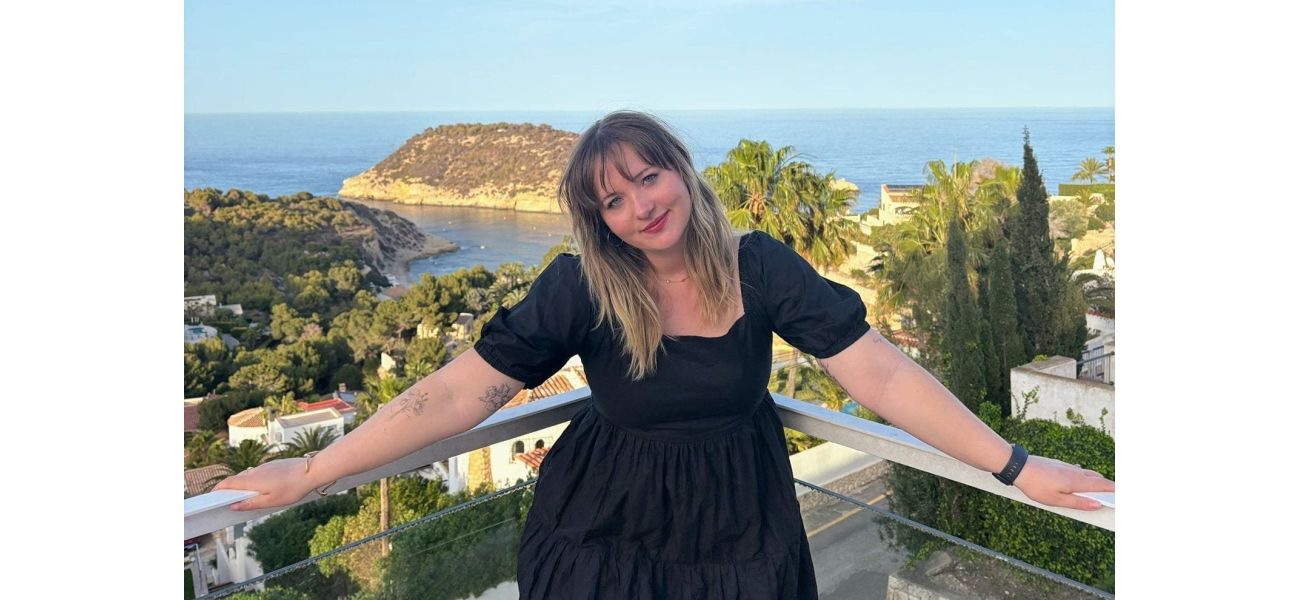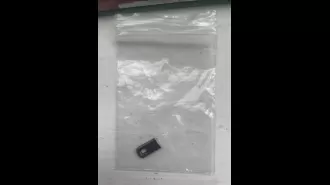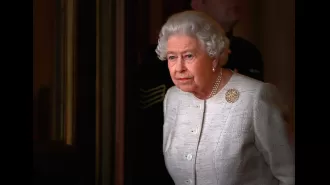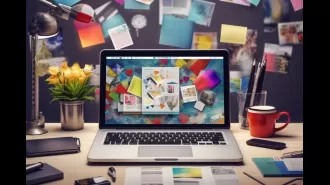Bisexual women are tired of hearing people claim they are jealous of them.
I frequently hear variations of this statement.
September 12th 2024.

When my friends and I would go to Sunday brunch at a cute café, we knew we were in for two things: overpriced lattes and my friends sharing their terrible experiences with guys they had met on dating apps. During one of these brunches, as my friend recounted a particularly lackluster date, another friend, Gina*, turned to me with a comment that I have come to dread: "You're so lucky you're into women! I don't know why you even bother dating men." This was not the first time I had heard a comment like this.
In fact, I have heard variations of it many times before. "I wish I was into women!" "Life would be so much easier if I was into women like you." "Why do you even go on dates with men?" The list goes on. But what may seem like harmless and playful comments about my sexual preferences actually do more damage than people might think. These comments consistently invalidate my bisexuality, even if it is unintentional.
As a bisexual woman, I am attracted to both men and women, with no preference towards one or the other. However, these comments reduce my sexuality, just like heteronormative comments would. It's frustrating because I want to be seen for who I am, not just a stereotype or a punchline.
When I first started coming out to my friends, it was a slow and shy process. Bisexuality wasn't something I discovered, it was something I had to recognize in myself. I always assumed that everyone felt the way I did about girls. I had always known I was attracted to boys, but I also found girls incredibly beautiful. It wasn't until I was in my late teens that I realized not everyone felt this way. It was like a whole new door had been opened for me, and I was excited to explore my attraction to both men and women.
But despite my excitement, I still struggled with fully accepting my bisexuality. I didn't feel like I had the right to call myself bisexual until I had more experience with women. This was my first experience with bi-erasure, and it was self-inflicted. It wasn't until I was 17 that I finally mustered up the courage to tell some of my friends. And while they were accepting and supportive, I still didn't feel entirely comfortable talking about it.
In university, I never felt like I belonged in the queer community. I was even dismissed by other LGBTQIA+ individuals as being "bi until graduation," as if my bisexuality was just a phase or a college experiment. This was hurtful, but I also understood that bisexuality is often misunderstood and erased, even within the LGBTQIA+ community.
Thankfully, the friends I did tell were supportive and worked hard to make me feel seen and accepted. But sometimes, their efforts were a little too much. When I ended a long-term relationship with a man, my friends were eager for me to "further explore my bisexuality." But it felt like they only wanted me to explore it with women. Every time I mentioned a date with a man, their first question was always about the person's gender. And when I did go on a date with a woman, their level of approval was almost Pavlovian.
On the other hand, when I did date or sleep with a man, and things didn't go well, I was immediately met with disappointment and warnings of "this is why you shouldn't date men!" It's as if my friends only saw the women I dated as potential partners, while the men were just a temporary inconvenience.
There have been times when I have found myself wishing I could just be straight or lesbian, as if I am the one complicating things. I've struggled with these feelings for most of my twenties, and I often feel guilty for reacting this way. I know my friends are trying to be good allies, but their well-intentioned actions can have negative consequences. It's like they are boxing me in, and I have to shut off the parts of me that like men to fit into their idea of what a bisexual woman should be.
When I finally brought up my feelings to my friends at the age of 27, I was met with hurt and defensive reactions. They explained that they were just trying to make me feel seen and accepted. They saw themselves as pioneers, breaking out of heteronormativity, and in a way, they were. They were making sure my attraction to women was not negated, but in doing so, they were also disregarding my interest in men.
I don't fault my friends for their actions, but I also need them to understand that women are not a solution to everything. Just like a boyfriend can hurt me, a girlfriend can hurt me too. Their good intentions can have unintended consequences, and in this case, it's boxing in bisexual women against their wishes.
When it comes to bisexuality, the same rules apply as any other sexual or gender identity: let people tell you who they are, and believe them. If I say I am equally interested in men and women, then respect my relationships with both. It's important to support my dates with women because I am still insecure about asking women out or finding my place as a femme queer. But it's also essential to support my dates with men because they are a part of who I am.
There is no allyship in disregarding someone's identity and reducing them to stereotypes or jokes. So let's all strive to be better allies and respect each other's sexual and gender identities. And if you have a story to share, please do so! We need to keep the conversation going and support each other.
In fact, I have heard variations of it many times before. "I wish I was into women!" "Life would be so much easier if I was into women like you." "Why do you even go on dates with men?" The list goes on. But what may seem like harmless and playful comments about my sexual preferences actually do more damage than people might think. These comments consistently invalidate my bisexuality, even if it is unintentional.
As a bisexual woman, I am attracted to both men and women, with no preference towards one or the other. However, these comments reduce my sexuality, just like heteronormative comments would. It's frustrating because I want to be seen for who I am, not just a stereotype or a punchline.
When I first started coming out to my friends, it was a slow and shy process. Bisexuality wasn't something I discovered, it was something I had to recognize in myself. I always assumed that everyone felt the way I did about girls. I had always known I was attracted to boys, but I also found girls incredibly beautiful. It wasn't until I was in my late teens that I realized not everyone felt this way. It was like a whole new door had been opened for me, and I was excited to explore my attraction to both men and women.
But despite my excitement, I still struggled with fully accepting my bisexuality. I didn't feel like I had the right to call myself bisexual until I had more experience with women. This was my first experience with bi-erasure, and it was self-inflicted. It wasn't until I was 17 that I finally mustered up the courage to tell some of my friends. And while they were accepting and supportive, I still didn't feel entirely comfortable talking about it.
In university, I never felt like I belonged in the queer community. I was even dismissed by other LGBTQIA+ individuals as being "bi until graduation," as if my bisexuality was just a phase or a college experiment. This was hurtful, but I also understood that bisexuality is often misunderstood and erased, even within the LGBTQIA+ community.
Thankfully, the friends I did tell were supportive and worked hard to make me feel seen and accepted. But sometimes, their efforts were a little too much. When I ended a long-term relationship with a man, my friends were eager for me to "further explore my bisexuality." But it felt like they only wanted me to explore it with women. Every time I mentioned a date with a man, their first question was always about the person's gender. And when I did go on a date with a woman, their level of approval was almost Pavlovian.
On the other hand, when I did date or sleep with a man, and things didn't go well, I was immediately met with disappointment and warnings of "this is why you shouldn't date men!" It's as if my friends only saw the women I dated as potential partners, while the men were just a temporary inconvenience.
There have been times when I have found myself wishing I could just be straight or lesbian, as if I am the one complicating things. I've struggled with these feelings for most of my twenties, and I often feel guilty for reacting this way. I know my friends are trying to be good allies, but their well-intentioned actions can have negative consequences. It's like they are boxing me in, and I have to shut off the parts of me that like men to fit into their idea of what a bisexual woman should be.
When I finally brought up my feelings to my friends at the age of 27, I was met with hurt and defensive reactions. They explained that they were just trying to make me feel seen and accepted. They saw themselves as pioneers, breaking out of heteronormativity, and in a way, they were. They were making sure my attraction to women was not negated, but in doing so, they were also disregarding my interest in men.
I don't fault my friends for their actions, but I also need them to understand that women are not a solution to everything. Just like a boyfriend can hurt me, a girlfriend can hurt me too. Their good intentions can have unintended consequences, and in this case, it's boxing in bisexual women against their wishes.
When it comes to bisexuality, the same rules apply as any other sexual or gender identity: let people tell you who they are, and believe them. If I say I am equally interested in men and women, then respect my relationships with both. It's important to support my dates with women because I am still insecure about asking women out or finding my place as a femme queer. But it's also essential to support my dates with men because they are a part of who I am.
There is no allyship in disregarding someone's identity and reducing them to stereotypes or jokes. So let's all strive to be better allies and respect each other's sexual and gender identities. And if you have a story to share, please do so! We need to keep the conversation going and support each other.
[This article has been trending online recently and has been generated with AI. Your feed is customized.]
[Generative AI is experimental.]
0
0
Submit Comment





